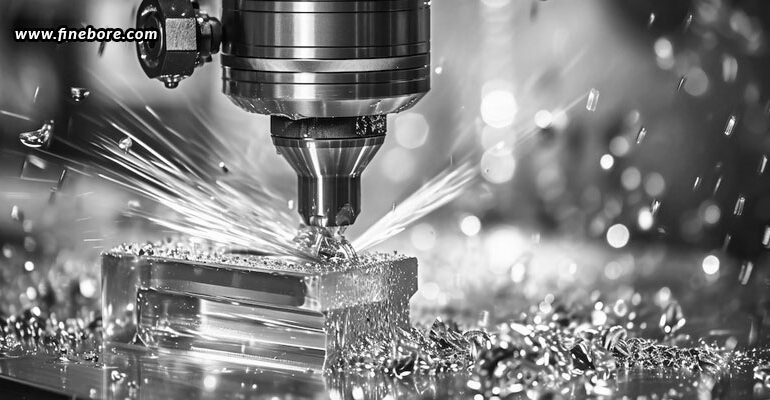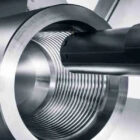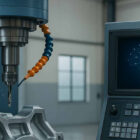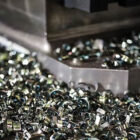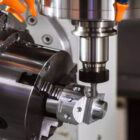The shift from prototype to full-scale production is a crucial stage in the manufacturing industry that necessitates accuracy, reliability, and effectiveness. While each component is painstakingly crafted during the design and prototyping stages, scaling up production presents new difficulties. Tools and procedures that guarantee uniformity without sacrificing quality are necessary when it comes to reproducing precise specifications across hundreds or even millions of items. A key component of contemporary machining, boring tools help manufacturers achieve accuracy, consistency, and scalability during this shift. By highlighting their contributions to quality control, production efficiency, and long-term cost-effectiveness, this blog examines how boring tools streamline the shift from prototype development to mass production.
The role of boring tools in prototyping
Any successful manufacturing process starts with the prototyping phase. Testing designs, confirming functionality, and pinpointing areas for improvement are the main goals of this phase. In order to ensure dimensional precision for features like holes, cavities, and bores, boring tools are essential for moulding the prototype. When building prototypes, accuracy is crucial because even minor deviations might result in misaligned assembly or functional problems. Manufacturers can enhance their components and make sure they fulfil the required criteria by using boring tools, which are made for precise tolerances. The foundation for scalability is laid by the insights gathered during this stage, which are used to inform the design of production processes. Furthermore, manufacturers can now machine complex geometries and difficult-to-cut materials that are frequently utilized in prototypes, thanks to contemporary boring tools that are outfitted with cutting-edge materials and coatings. Regardless of the difficulties presented by the material or structure, this adaptability guarantees that the prototype’s design objective is maintained.
Scaling up from one to many
The process of moving from prototype to production presents a new set of challenges, and the main objective is to replicate the precision of the prototype across a large number of parts. This is where boring tools come in handy, as they offer unmatched consistency and efficiency. One of the main benefits of using boring tools is that they can maintain uniformity across repeated operations. In mass production, consistent bore sizes and surface finishes are crucial for making sure that components fit together seamlessly in assemblies. Boring tools with automated features and adjustable heads are especially useful because they allow manufacturers to fine-tune operations and adjust to changes in materials or machine conditions without sacrificing accuracy. Furthermore, high-performance boring tools are made to last longer, reducing downtime for maintenance and tool changes. This longevity is vital for preserving production schedules and lowering expenses, especially in industries like automotive and aerospace, where large-scale production is common.
Ensuring quality at scale
One of the biggest challenges in mass production is maintaining quality across thousands of components; even minor variations in dimensions or surface finishes can result in rejected parts, assembly problems, or product failures. Boring tools are at the forefront of quality assurance, making sure that every component meets the necessary specifications. Features like in-process measurement systems, which enable real-time monitoring and machining parameter change, are frequently included with advanced boring tools. By ensuring that any deviations are promptly fixed, these solutions cut down on waste and boost productivity. Additionally, the performance and endurance of boring tools are improved by the use of wear-resistant materials and specialized coatings, which enable them to produce reliable results even in demanding applications. Manufacturers may significantly lower error rates and increase the dependability of their manufacturing processes by investing in high-quality boring tools.
The cost-effectiveness of precision boring tools
It is impossible to overestimate the influence of precision boring tools on long-term cost savings, despite their very high initial cost. These tools lower waste, downtime, and maintenance expenses in addition to increasing production efficiency. For instance, precision boring tools can machine tough materials like titanium or hardened steel with minimal tool wear, which lowers the need for frequent replacements in industries that use these materials. The production process is further streamlined by their ability to maintain strict tolerances, which also removes the need for supplementary processes. In high-volume manufacturing, where even minor efficiency gains might eventually result in significant cost reductions, the affordability of boring equipment is especially clear. Boring tools help manufacturers become more profitable and competitive by allowing them to produce high-quality components in large quantities.
Where to get your precision boring tools?
For enterprises aiming to optimize their manufacturing processes, precision boring tools suppliers in Bangalore, such as FineTech Toolings, offer trustworthy and high-quality solutions. Well-equipped with state-of-the-art knowledge and technologies to meet the various demands of industries like electronics and automobiles, we promote innovation and excellence in our manufacturing processes by utilizing the possibilities of precision boring equipment. Because these tools are made to perform consistently, manufacturers can easily move from developing prototypes to producing large quantities.
Prototype to production is a complicated process that needs careful preparation and implementation. In this shift, boring tools are essential because they offer the accuracy, reliability, and productivity required to expand production without sacrificing quality. Boring tools are essential for modern companies, from forming early prototypes to guaranteeing consistency throughout mass production. Their potential to improve production processes is stronger than ever, thanks to ongoing improvements in tool design and boring tool materials. Purchasing high-performance boring tools is not an option for manufacturers hoping to succeed in cutthroat markets; it is a must. Businesses may meet production targets while upholding the highest standards of efficiency and quality by using such precision boring tools.

